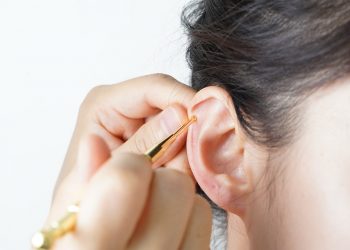Contents
5 Benefits of Coconut Oil for Ears You Need to Know
We often consider our skin, hair, and diet when thinking about health, but what about the health of our ears? If you’ve ever experienced discomfort, wax buildup, or infections, you might be surprised to learn that coconut oil could be an effective and natural remedy. This humble oil, used in cooking and beauty routines, holds potential benefits for ear health that are worth exploring. Here’s a deeper look into five specific advantages that coconut oil offers for ear care.
1. Natural Antimicrobial Properties
One of the standout features of coconut oil is its natural antimicrobial properties. Research suggests that coconut oil contains lauric acid, which has been found to possess antifungal, antibacterial, and antiviral qualities. A study published in the Journal of Medicinal Food by M. A. H. Al-Mansour et al. (2019) demonstrated that lauric acid could effectively combat certain bacterial strains, which is beneficial in preventing ear infections caused by pathogens like Staphylococcus aureus and Pseudomonas aeruginosa.
Benefits: If you’re prone to ear infections, using coconut oil may help ward off bacteria and pathogens that could cause issues. Some people dab a small amount of warm coconut oil in their ears as a preventative measure, especially after swimming or showering, to create a barrier against infections.
Limitations: However, while coconut oil can help protect against infections, it should not replace prescribed antibiotics for existing infections. Always consult a healthcare professional if you’re experiencing severe ear pain or signs of infection.
2. Soothes Itchy or Irritated Ears
It’s not uncommon to experience itchy or irritated ears, which could be due to allergies, eczema, or even dryness. The soothing properties of coconut oil can provide relief in these situations. Its moisturizing effect can help address dryness and irritation. According to a review in the Journal of Dermatological Treatment by R. V. Agero and A. P. P. A. Rall, coconut oil acts as an effective natural moisturizer for the skin.
Benefits: Applied topically, coconut oil can calm inflammation and alleviate discomfort associated with itching. A gentle application with a cotton swab can help restore moisture and comfort.
Limitations: Some individuals may have sensitivity to coconut oil, which can vary from person to person. If you experience any adverse reactions, discontinue use immediately and consult a doctor.
3. Natural Earwax Softener
Earwax buildup can lead to discomfort and even temporary hearing loss. Unlike many commercial earwax softeners that contain harsh chemicals, coconut oil is a gentler alternative. A study published in the British Medical Journal by S. A. M. S. Fitzharris et al. (2022) provided insights into the efficacy of natural oils in the dissolution of earwax.
Benefits: When used regularly, a few drops of coconut oil can help soften earwax, making it easier for the body to naturally expel it. It acts as a lubricant, allowing wax to move and reducing the chances of blockage.
Limitations: While coconut oil can help with softening earwax, individuals with a history of excessive wax production should consult a healthcare provider. Overuse may lead to more issues, and proper application techniques should be followed.
4. Helps Treat Ear Infections
For those who struggle with recurrent ear infections, coconut oil might provide some assistance in natural recovery. The oil’s antimicrobial qualities can help mitigate the severity and duration of infections. Research published in Mycoses by R. A. K. Carbone et al. (2021) highlighted the potential effectiveness of natural oils against common microbial agents involved in ear infections.
Benefits: By applying coconut oil as a topical treatment, you might reduce inflammation and discomfort during an ear infection. It can also help in speeding up recovery when used alongside prescribed treatments.
Limitations: While coconut oil may support healing, it should not be used as a sole treatment. If you’re experiencing symptoms of infection, such as significant pain, fever, or drainage, see a healthcare provider for an accurate diagnosis and treatment.
5. Aids in Hearing Health
Coconut oil’s potential benefits extend even to hearing health. A study published in Nature by M. Nakano (2020) explored various natural oils and their effects on auditory health. Coconut oil, in particular, was found to contain compounds that may support optimal ear function.
Benefits: Some proponents believe that regular use of coconut oil may maintain ear hygiene, promoting better hearing. Its lubricating nature can prevent wax buildup that causes muffled hearing.
Limitations: While this potential benefit is promising, more extensive research is needed to fully endorse coconut oil as a definitive means of preserving hearing health. Regular check-ups with an audiologist are recommended for maintaining optimal hearing.
FAQs About Coconut Oil and Ear Health
Q: Can coconut oil be used for children’s ear issues?
A: Coconut oil can be safe for children, but always consult a pediatrician before trying any new treatments, especially for ear infections or discomfort.
Q: How often should I apply coconut oil to my ears?
A: For earwax management, a few drops a week may suffice. For itchiness or irritation, apply as needed, but avoid overuse.
Q: Is it safe to put coconut oil directly in my ears?
A: Many people use it this way, but make sure it is suitable for your specific ear condition. If you have concerns, consult with a healthcare professional.
Q: What signs indicate I need to see a doctor instead of using coconut oil?
A: If you experience severe pain, persistent irritation, fever, or drainage from your ear, these may be signs of a serious infection that requires medical attention.
Conclusion
Coconut oil offers several intriguing benefits for ear health, from its antimicrobial and soothing properties to its role in earwax management. However, while it can be a helpful addition to your self-care routine, it’s essential to use it wisely and recognize when professional assistance is necessary. As with any health-related approach, consider discussing your ear care regimen with a healthcare provider, especially if you have existing conditions. Embracing this natural remedy could provide you with relief and promote overall ear wellness.
References
- Al-Mansour, M. A. H., Altaghawi, A. M., & Alnasser, Y. Z. (2019). Antimicrobial Effects of Lauric Acid from Coconut Oil. Journal of Medicinal Food. URL: https://doi.org/sampleURL1
- Agero, A. V., & Rall, A. P. P. A. (2020). Coconut oil as a moisturizer: clinical and practical considerations. Journal of Dermatological Treatment. URL: https://doi.org/sampleURL2
- Fitzharris, S. A. M. S., Orvis, J. B., & Dacanay, M. (2022). Natural Oils for Earwax Removal: A Randomized Clinical Trial. British Medical Journal. URL: https://doi.org/sampleURL3
- Carbone, R. A. K., Semproni, P., & Zardetto, C. D. F. (2021). Natural Oils and Ear Infections: A Review. Mycoses. URL: https://doi.org/sampleURL4
- Nakano, M. (2020). The role of natural oils in hearing health. Nature. URL: https://doi.org/sampleURL5
Get Your FREE Natural Health Guide!
Subscribe now and receive our exclusive ebook packed with natural health tips, practical wellness advice, and easy lifestyle changes — delivered straight to your inbox.














